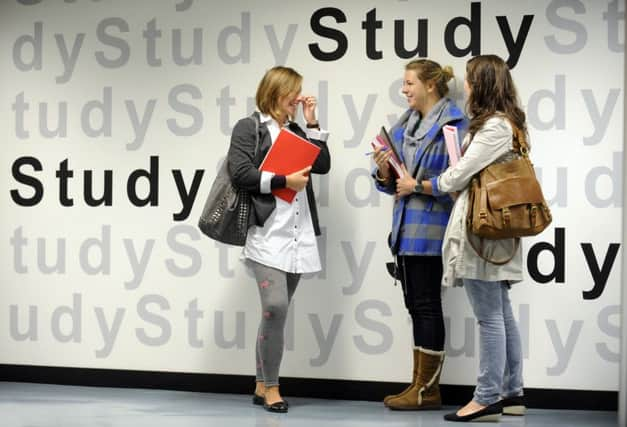Care-experienced young people need support to go to university – Gary Darroch


Both existing and proposed support relating to accommodation, finance and mentoring is admirable and welcome. However, perhaps the issue requiring more focus and attention is taking those who are care-experienced to the point where they feel willing and, more importantly, able to apply to university.
For many care-experienced young people, the very notion of university can trigger feelings from personal inadequacy and anxiety to bewilderment at the thought of someone suggesting such a thing. The latest information suggests that in 2016-17 just 335 students who had experience of care went to university, reinforcing the fact that entry requirements are not the only barrier.
Advertisement
Hide AdAdvertisement
Hide AdAs a sector of care workers and, more importantly, corporate parents, we should be embracing this policy and accepting the challenge of shifting the perceptions that care-experienced young people have, where attending university is somehow beyond their ability or outside of their life parameters, which are often dictated by family and community experiences.
Most young people who enter our care have endured some form of traumatic event and require additional, and often extensive, social, emotional and behavioural support. This often includes the support of mental health professionals and educational psychologists in order to support the multi-agency care plan required to effectively care for each young individual and help them make sense of their world and cope with future hurdles.
While society as a whole is considerably more educated and understanding of those young people who require to be looked after, there are still often generalisations forwarded about ‘bad kids’ and their life chances being minimal. Perhaps even more frightening is that statistics for those who are care-experienced can almost support these stereotypes, regardless of how much those in the childcare sector balk at such stances.
The latest Who Cares? Scotland statistics demonstrate that almost 33 per cent of the adult prison population and 6 per cent of homeless are care-experienced. However, these figures rely on self-identification, thus practitioners estimate the actual figures to be closer to 50 per cent and 40 per cent respectively (homeless figures based on those who actually apply for homeless support and self-identify as care-experienced).
The drive and commitment by Scotland’s universities to widen access was affirmed in the Blueprint for Fairness published by the Scottish Government in March 2016. This highlighted contextualised admissions and year-round support combined with accommodation and mentoring programmes.
Nevertheless, Holyrood magazine and TES reported that last year only 4.5 per cent of care-experienced school leavers enrolled on a higher education course, compared to 41 per cent of non-care experienced school leavers, suggesting something has not yet clicked.
To allow this plan to be a success and ultimately enhance the lives of thousands of future care-experienced young people and mature students, it must be approached from both sides.
Firstly, the framework and system for attraction, admittance and support throughout their time at university must be in place to help overcome barriers and sustain drive and confidence in completing their studies. Secondly, and most importantly, there needs to be a societal shift where a genuine belief that access to university should be fair is developed so that any young person or adult has the potential to thrive and realise their own potential having the appropriate supports around them, regardless of their circumstances.
Advertisement
Hide AdAdvertisement
Hide AdThese supports should be all encompassing and provided through care, health and education systems, allowing those affected by adverse childhood experiences to develop their own self-worth, resilience and confidence.
By reaching a common ground where care-experienced people are supported to a desire and capability or even just aspiration to apply to university, and are met with a welcoming, accessible and supportive higher education establishment at the earliest possible juncture, we can establish an appropriate plan to allow them to achieve their goals whilst taking into account both care and education needs. As a sector, and more widely as a society, we should be encouraging all children and young people, regardless of background and circumstance, to aim high in all aspects of their lives by offering the appropriate support to help them get there.
Gary Darroch, residential manager, Spark of Genius, member of the Scottish Children’s Services Coalition.